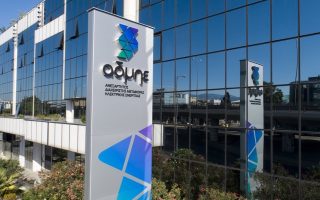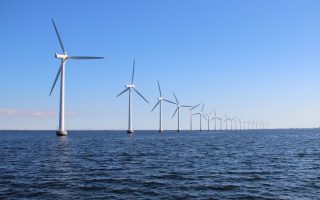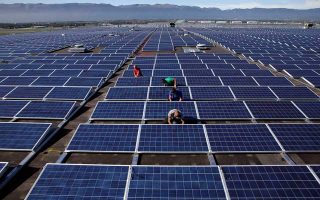Russian gas back to pre-war market share

The share of Russian natural gas in the Greek market in the first nine months of 2023 reached the same level as before the invasion of Ukraine, while in September it reached an all-time high of 72%.
The share of Russian gas in the total mix of the domestic market increased from 35.7% in the first nine months of 2022 and 14.3% in the whole year (down by 68.3% compared to 2021) to 45% in January-September 2023. This paradoxical reversal, given the European goal of its member-states weaning themselves off Russian gas completely by 2027, is a result of Russia’s low-price LNG supply policy to limit revenue losses from the gas it transported to Europe via pipelines.
In the first seven months of 2023, LNG imports from Russia to Europe increased by 40% compared to the same period in 2021 – i.e. before the Russian invasion of Ukraine. Russia is currently the second largest exporter of LNG in Europe and, according to NGO Global Witness, the cost of Russian LNG entering Europe in the first seven months of 2023 amounted to €5.29 billion.
“It is shocking that the EU countries have worked so hard to wean themselves off Russian pipeline gas, only to replace it with the equivalent by ship,” Jonathan Noronha-Gant, a Global Witness senior fossil fuel campaigner, told the Financial Times.
“It doesn’t matter whether it comes from a pipeline or a ship, what matters is that European companies are still sending billions to Vladimir Putin’s war chest,” he said.
In Greece, as in all of Europe, Russia has emerged as the second LNG exporter, transporting 4 terawatt-hour loads to the domestic market within nine months, from zero quantities until last year, and displacing shares of other producers such as the US, which may remain in first place but limited the quantities they put into the Greek system to 10 TWh from 18.67 TWh in the corresponding period last year.
The increase in the share of Russian gas is not the only change in the domestic gas market, where nothing resembles last September, when at Revithoussa importers were fighting to book a slot for LNG cargoes that arrived from various sources to replace Russian gas in neighboring Balkan markets: Natural gas exports in January-September were drastically reduced by 35%, after an increase of 294.73% last year.





